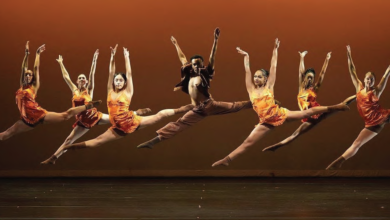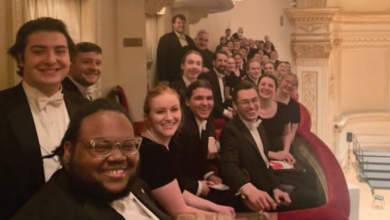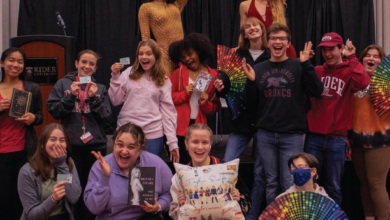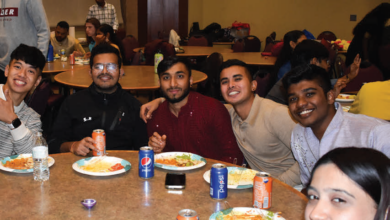Drop it like it’s hot: Film screening portrays the ‘95 Chicago heatwave
By Christian McCarville
The Green Film series has been a recurring event on campus since the fall of 2009. The event typi- cally revolves around a film with pro-environmental themes. These themes grow more relevant each day as the threat of climate change continues to loom over our heads.
On the evenings of Sept. 15 and 16, the Office of Sustainability joined forces with the Center for Diversity and Inclusion to present the next continuation of the Green Film series. At this event, the film “Cooked: Survival by Zipcode” was shown to a virtual audience including students, faculty and staff.
This film portrays the 1995 Chicago heat wave in which 739 people in the city died over one week due to heat- related deaths. From these 739 people, the majority were black, elderly and living in low-income areas. The film addresses this disparity of deaths during the brutal heatwave while also discussing similar occurrences during other natural disasters such as Hurricanes Katrina and Sandy.
Director of Sustainability Melissa Greenberg emphasized the need for awareness of the film’s main topic: environmental racism.
“Most people don’t automatically think about poverty or racism when they hear the term sustainability,” said Greenberg. “Even those that live in underserved communities may not have ever heard the term environmental racism, but it’s a global reality and needs to be addressed. Educating on this topic is important to fully understand the effects of climate change and sustainability.”
The film connects climate change and racism by portraying how many people of color have been systematically restricted to low-income areas where they cannot properly defend against a changing climate.
Greenberg commented on how these communities are impacted by the negative implications of climate change.
“Climate change hits these communities the hardest not only in the United States, but globally,” said Greenberg. “Some eye-opening scenes of the film showed how millions of dollars are spent on disaster preparedness just in case something happens while neighboring communities struggle with keeping the electricity on for fans or air conditioners, or the fear of simply opening a window in a ‘high crime’ neighborhood.”
This film was enlightening to many who had not considered how climate change affected those that lack the luxury of air conditioning and electricity.
Senior environmental science major and eco-representative Dean Riddle provided some further insight into global warming.
“We are going through unprecedented times of extreme weather with hotter and colder temperature extremes,” said Riddle. “If these patterns continue, there’s no promise the world will be the way as we know it for future generations to enjoy. It’s up to each and every one of us to take action and do what we can to make the environment better for now and the future.”
Greenberg went on to explain her experience in holding the Green Film event with an entirely virtual audience.
“With this film, we experienced technical difficulties during the first night’s screening that resulted in some people missing the film altogether,” said Greenberg. “For those that were able to see the film and participate in the discussion to follow, it was a great success with many students sharing their views about the film and their personal experiences.”
The second night’s screening resulted in much less technical difficulties and even included a surprise panel discussion with the film’s director.
“In seeking a viewing solution for the night two screening, we got tremendously lucky. We found out that Peabody Award-winning filmmaker Judith Helfand was hosting a film screening and panel discussion that was free and open to the public through a virtual platform the same night, at the same time,” said Greenberg.
The second screening began with a gathering on Zoom as planned, but after some announcements and a preview of next month’s film, the audience was asked to click a link in the chat box to enter a new Zoom room for the screening of the film. Following this, students were able to view the panel discussion and participate by entering questions in the chat.
“This was a bonus experience that we had not anticipated when we planned the film screening months before,” said Greenberg. “Our technical challenges turned out to be a blessing in disguise and although stressful, totally worth it.”



